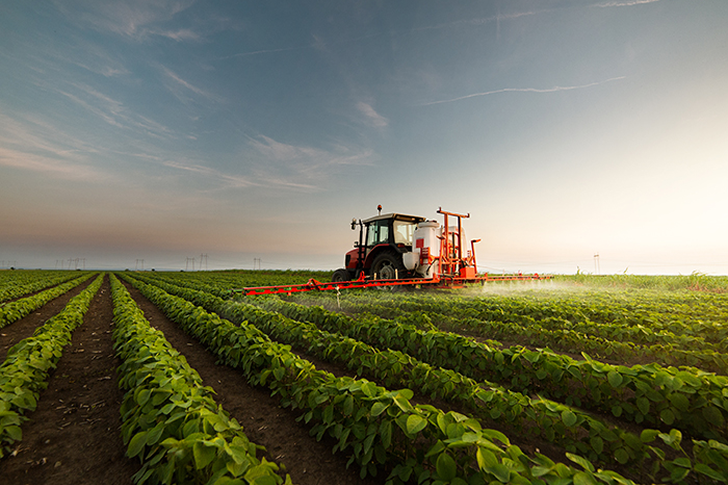Understanding the Key Factors in Selecting Farm Insurance
Farm insurance is a vital component for any agricultural business, protecting against potential risks associated with farming operations. From crop damage due to unforeseen weather events to livestock diseases, the right farm insurance policy can mean the difference between a manageable recovery and a financial disaster. This article will guide you through the key factors to consider when selecting farm insurance, ensuring you make an informed decision that safeguards your agricultural interests.

Assessing the Coverage Needs of Your Farm
The first step in selecting farm insurance is to assess the specific needs of your farm. Every agricultural enterprise is unique, ranging from small family-run farms to large commercial agribusinesses. The type and extent of coverage needed will depend on various factors such as the size of your farm, the types of crops you grow, the livestock you rear, and the equipment you use. For instance, if you operate a large-scale dairy farm, your insurance needs concerning livestock will be significantly different from a crop-only farm.
Statistics from the USDA show that livestock issues account for a substantial percentage of farm insurance claims, indicating the importance of tailored livestock coverage. Moreover, farms with high-value equipment may require additional coverage for machinery, which underlines the importance of asset evaluation in determining insurance requirements.
Understanding Different Types of Farm Insurance Policies
Farm insurance encompasses a variety of policies that cover different aspects of agricultural production. The main types include crop insurance, livestock insurance, equipment insurance, and liability insurance. Each type addresses specific risks:
- Crop Insurance: Protects against the loss of your crops due to natural disasters like floods, hail, and droughts. The Federal Crop Insurance Corporation reports that over 90% of U.S. farmland is covered under some form of crop insurance.
- Livestock Insurance: Provides coverage for livestock in the event of death caused by accidents or disease. This type of insurance is crucial for farms dependent on the health and productivity of their animals.
- Equipment Insurance: Covers the repair or replacement of farm machinery and equipment damaged by accidents or other covered events.
- Liability Insurance: Protects farm owners against legal claims resulting from injuries or property damage to others.
Choosing the right mix of these insurance types is dependent on the risky areas of your operations and ensures a comprehensive protection strategy.
Consider the Role of Deductibles and Premiums
Deductibles and premiums play a significant role in farm insurance decisions. Generally, a higher deductible means a lower premium, but it also means more out-of-pocket expenses when a claim is made. Farmers need to balance the potential risk of a disaster against their ability to pay a higher upfront cost in the event of a claim. According to a survey by the National Farm Bureau, the average deductible for farm policies varies significantly depending on the type of coverage and the insurer. Farmers must evaluate their financial stability and risk tolerance when determining an appropriate deductible level.
Check Insurance Provider’s Reputation and Financial Stability
Choosing an insurance provider with a solid reputation and excellent financial stability is crucial. An insurer’s ability to cover claims, especially during widespread disasters that can affect multiple policyholders simultaneously, is essential. Several rating agencies, such as A.M. Best, provide ratings for insurance companies based on their financial health and claims-paying ability. Consulting these ratings, along with reviews from other farmers, can provide valuable insights into the reliability of an insurance company.
Look for Flexibility and Additional Coverages
Farm operations can change over time, and so can insurance needs. It is essential that your farm insurance policy offers the flexibility to adjust coverages as your farm evolves. Additionally, looking for policies that offer additional coverages, such as workers’ compensation or environmental liability, can provide extra security for unforeseen liabilities.
Some insurers offer bundled packages or custom policies tailored specifically for the unique needs of farms, which can often result in cost savings and ease of management. Over the past decade, customized farm insurance policies have proliferated, allowing farmers to achieve more targeted coverage solutions tailored to their specific operational risks.
Conclusion
Selecting the right farm insurance is a critical decision that requires careful consideration of various factors. By assessing the specific needs of your farm, understanding the different types of available policies, evaluating financial aspects like deductibles and premiums, checking the insurer’s reputation, and considering the flexibility and additional coverages of a policy, you can make an informed choice that protects your assets and ensures the continuity of your farming operations. Remember, the goal is to cultivate a secure future for both your farm and family.







Recent Comments